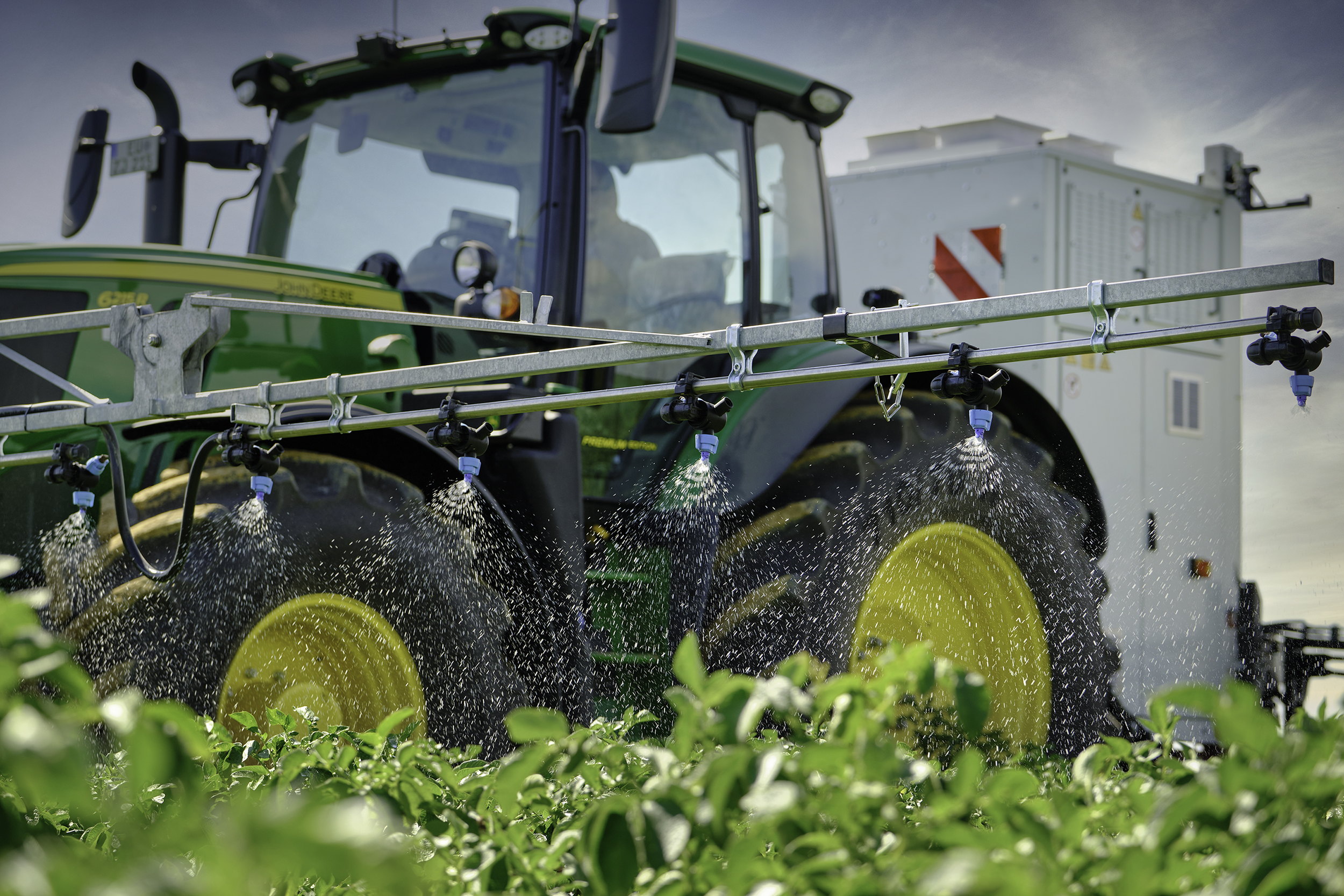
dirk_vandenhirtz, veröffentlicht am 16.01.2024
Managing Resistant Weeds on Farmland: The Role of crop.zone
The Reuters article discusses the increasing problem
of crop-killing weeds, such as kochia, spreading across U.S. farmland. These
weeds are developing resistance to chemicals more rapidly than new products can
be created. The issue is exacerbated by the declining share of revenue devoted
to research and development in chemical companies. This situation poses a
significant threat to grain and oilseed harvests, especially in light of rising
inflation and climate change-related extreme weather. The article highlights
the urgent need for new approaches to weed control in agriculture.
For more detailed information, you can read the full article on Reuters’ website: Crop-killing weeds advance across US farmland as chemicals lose effectiveness.
In the face of escalating challenges in agriculture,
particularly the rising issue of chemical-resistant weeds, innovative solutions
like crop.zone are emerging as vital tools for sustainable farming.
The issue at hand is significant. Weeds resistant to
conventional herbicides are advancing across farmland, threatening crop yields
and food security. Traditional chemical herbicides are losing their
effectiveness, and the agricultural sector is under pressure to find
alternative methods that are both effective and environmentally sustainable.
crop.zone stands at the forefront of this
transformation. By shifting the focus from chemical herbicides to more
sustainable treatments, it addresses the core of the problem: the need for
effective weed control that doesn’t contribute to the cycle of resistance and
environmental harm.
At its core, crop.zone offers an innovative approach
to weed management. It utilizes advanced technology to target weeds in a way
that is less reliant on chemical herbicides. This method is not only effective
against weeds that have developed resistance to traditional chemicals but also
reduces the environmental footprint of weed control.
One of the key advantages of crop.zone’s technology is
its precision. By accurately targeting weeds, it minimizes the impact on
surrounding crops and soil health. This precision is crucial in maintaining the
delicate balance of the ecosystem and ensuring the long-term fertility of the
soil.
Moreover, crop.zone’s solution aligns with the growing
global demand for sustainable agricultural practices. As consumers become more
environmentally conscious, there is an increasing preference for products grown
with minimal chemical inputs. crop.zone’s approach, therefore, not only
addresses an immediate agricultural challenge but also aligns with broader
market trends and consumer preferences.
The environmental benefits of crop.zone’s approach are
significant. By reducing the reliance on chemical herbicides, it decreases the
risk of chemical run-off into waterways, thus protecting aquatic ecosystems. It
also contributes to reducing the overall carbon footprint of farming
operations, a critical factor in the global effort to combat climate change.
In the context of climate change and extreme weather
conditions, the resilience offered by sustainable weed management becomes even
more crucial. crop.zone’s technology is adaptable to various climatic
conditions, offering farmers a reliable tool in their fight against weeds,
regardless of the environmental challenges they face.
Furthermore, crop.zone’s approach is not just
environmentally sound but also economically viable. By offering an effective
and efficient alternative to chemical herbicides, it helps farmers manage costs
and maintain profitability in an increasingly competitive and challenging
market.
In conclusion, as the agricultural sector grapples
with the challenge of resistant weeds and the limitations of traditional
chemical herbicides, crop.zone emerges as a beacon of hope. Its innovative and
sustainable approach to weed management offers a pathway to more resilient,
environmentally friendly, and economically viable farming practices. As such,
crop.zone is not just a solution for today’s problems but a step towards a more
sustainable and secure agricultural future
